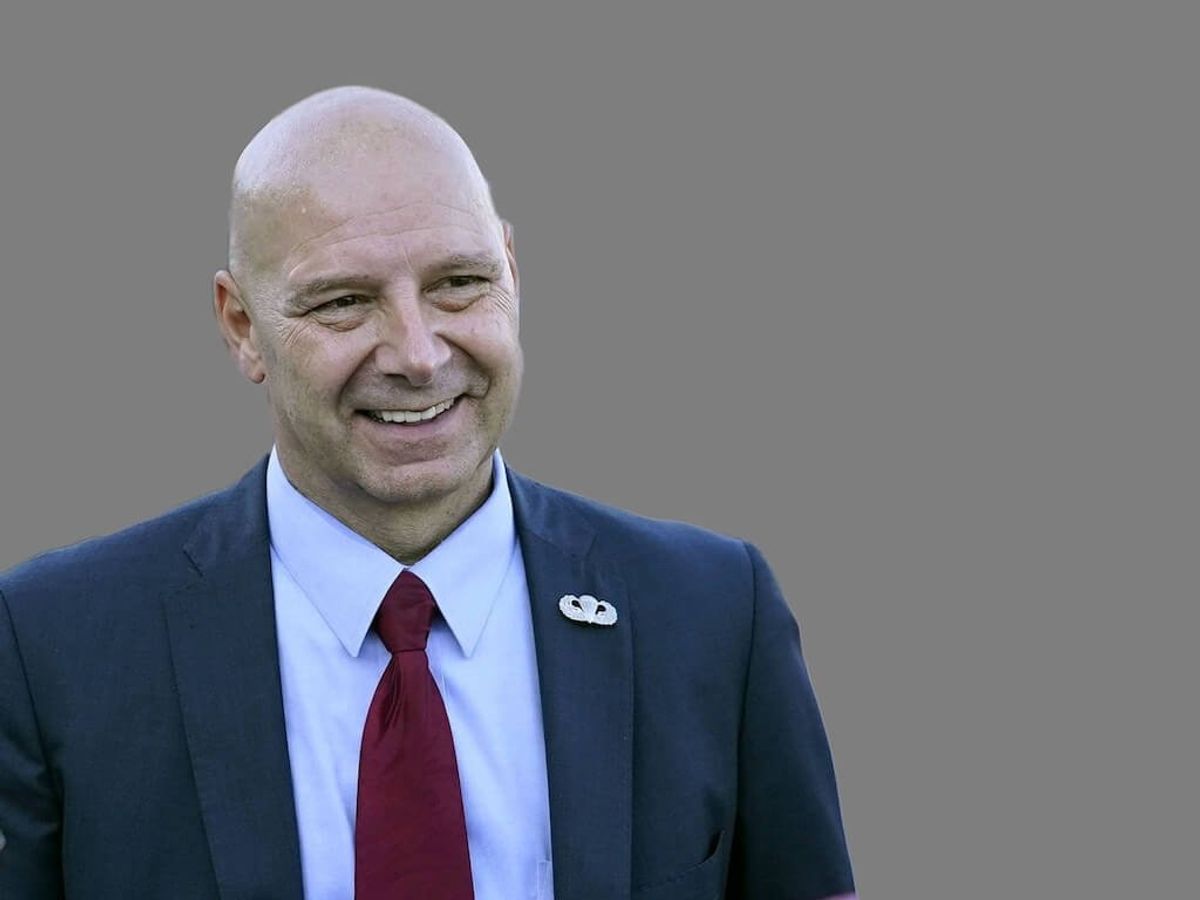
Former DHS Official Says He Wrote NY Times ‘Anonymous’ Trump Critique
A former Trump administration official who penned a scathing anti-Trump op-ed and book under the pen name "Anonymous" revealed himself Wednesday as a former chief of staff at the Department of Homeland Security.
The official, Miles Taylor, came forward six days before Election Day to criticize President Donald Trump as "a man without character." He said he hoped other former administration officials will "find their conscience when they wake up tomorrow" and speak up, too.
Taylor has been an outspoken critic of Trump's in recent months and had repeatedly denied he was the author of the column and subsequent book — even to colleagues at CNN, where he has a contributor contract. He left the Trump administration in June 2019 and endorsed Democrat Joe Biden for president this summer.
Trump and White House officials moved quickly to describe Taylor as someone with little standing and clout.
"This guy is a low-level lowlife that I don't know. I have no idea who he is, other than I got to see him a little while ago on television," Trump told a campaign rally crowd in Arizona. As he belittled Taylor as a "sleazebag" and called for his prosecution, the crowd broke into cheers of "drain that swamp."
But as DHS chief of staff, Taylor was in many White House meetings with the president on his border policy and other major Homeland Security issues. During Taylor's time as chief of staff, Trump threatened to shut down the border and his administration developed the policy to force asylum seekers to wait across the U.S.-Mexico border.
White House chief of staff Mark Meadows called Taylor's revelation "a monumental embarrassment," tweeting, "I've seen more exciting reveals in Scooby-Doo episodes."
During a CNN appearance with Chris Cuomo Wednesday night, Taylor said he didn't unmask himself earlier because the story would have disappeared within 48 hours.
"No one would pay attention and they wouldn't care," he said. "Right now, Americans are reviewing the president's resume, his record and his character and it is mission critical that people like me, but others, come out now when the voters are listening and tell them who this man really is."
Taylor's anonymous essay was published in September 2018 by The New York Times, infuriating the president and setting off a frantic White House leak investigation to try to unmask the author.
In the essay, the person, who identified themselves only as a senior administration official, said they were part of a secret "resistance" force out to counter Trump's "misguided impulses" and undermine parts of his agenda.
The author wrote, "Many Trump appointees have vowed to do what we can to preserve our democratic institutions while thwarting Mr. Trump's more misguided impulses until he is out of office."
The Times identified the author as a "senior official" in the administration and received some criticism online Wednesday for inflating Taylor's credentials. The newspaper, which said it had granted Taylor anonymity because his job would be jeopardized if his identity was revealed, on Wednesday confirmed Taylor was the author because he has waived his right to confidentiality, and had no other comment.
The allegations incensed the president, bolstering his allegations about a "deep state" operating within his government and conspiring against him. The president, who had long complained about leaks in the White House, also ordered aides to unmask the writer, citing "national security" concerns to justify a possible Justice Department investigation.
Instead, the author pressed forward, penning a follow-up book published last November called "A Warning" that continued to paint a disturbing picture of the president, describing him as volatile, incompetent and unfit to be commander in chief.
To a certain extent, he's since been overshadowed by other former government officials, both during the impeachment hearings and after, who went public condemning Trump's behavior with their names attached.
Taylor's behavior also leaves questions for CNN. He was asked directly by the network's Anderson Cooper in August whether he was "Anonymous" and answered: "I wear a mask for two things, Anderson, Halloween and pandemics. So, no."
Josh Campbell, a national security correspondent for CNN, tweeted that he had also asked Taylor if he was "Anonymous" and was told no.
Taylor said Wednesday that he owed Cooper a beer and a mea culpa. He said he wrote in his book that he would deny being "Anonymous" if asked, because he wanted to keep the focus on his arguments, instead of who was writing them.
"You know what the problem is with having lied is: Now you're a liar, and people will be slow to believe you," Cuomo said.
But he continued with a half-hour interview where Taylor denounced Trump. CNN said Taylor would remain a network contributor.
Taylor said he believed Trump would double down on damaging policies, particularly the separation of families at the southern border, if he won a second term.
"They want to turn this country into fortress America rather than a shining city on the hill," he said.
He said he considered resigning from the Trump administration a year before he did and wishes now that he had.
Former GOP consultant Reed Galen, one of the founders of the anti-Trump group The Lincoln Project, tweeted that Taylor "isn't a hero." He added: "He sat in those rooms, in those councils of power and allowed the banality of evil to work. … Heroism isn't silence until it's convenient and personally advantageous to stand up."
 Trump, Biden Campaign in Florida ThursdayNext PostHow Biden and Trump Differ on Foreign Policy
Trump, Biden Campaign in Florida ThursdayNext PostHow Biden and Trump Differ on Foreign Policy







